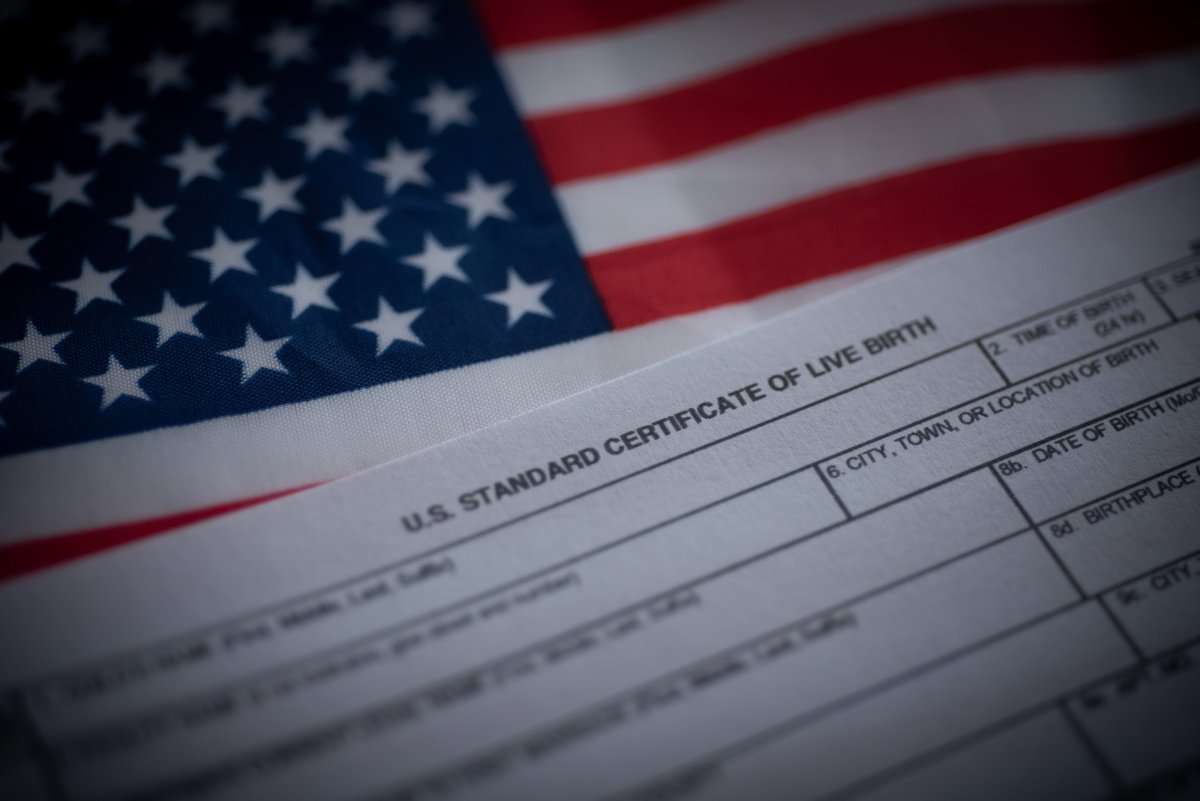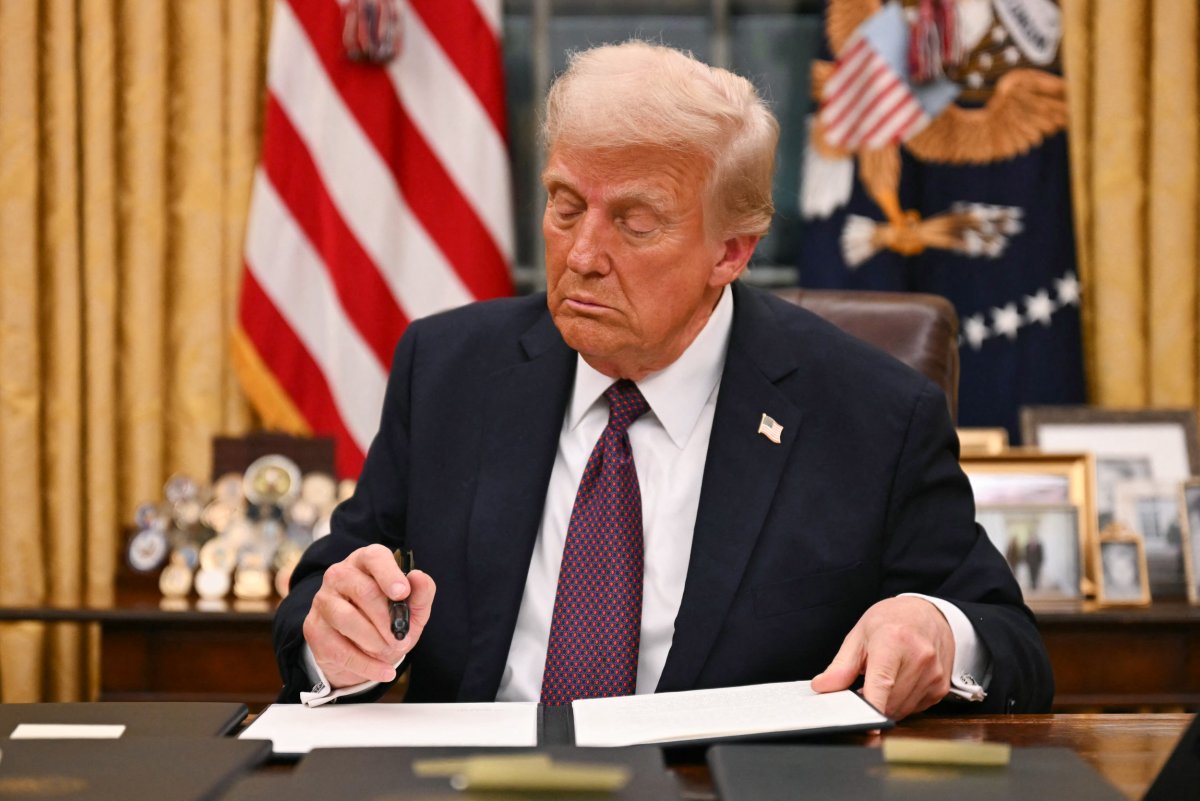Nearly 850,000 babies were born in the United States to foreign-born mothers in 2023, the last full year of data available. While not all of those would necessarily qualify as birthright citizenship babies, it is likely many were born to mothers who were not American citizens.
Getting a definitive figure on birthright rates is a difficult, if not near-impossible, task, as hospitals do not generally ask parents about their immigration status in the delivery room. For the Trump administration seeking to overturn the long-running right, as well as those fighting that plan, numbers would be useful.
“All of our bureaucratic systems are set up with the assumption that children born here are U.S. citizens and changing that would require such a different set of forms and processes that just don’t exist right now,” Julia Gelatt, associate director of the U.S. immigration policy program at the Migration Policy Institute, told Newsweek.

Getty Images
How Many Birthright Babies Are There?
The number of babies born to foreign-born moms has hovered around the 800,000 mark for the past decade, but it was above a million in the early 2000s. As federal government data does not give a greater level of detail, this is largely the number analysts and government agencies have to work with.
Averaging out these births across 2015-2023 works out at around 849,941 per year. If that trend continued into 2024 and 2025, then over the first two months of the Trump administration, around 141,656 newborns arrived to foreign-born mothers.
The U.S. Census Bureau told Newsweek birthright information was not something it collected, and it could not comment or speculate on trends. The CDC also told Newsweek that it also was not able to determine a mother’s immigration status.
“If you’re parsing through U.S. census data and trying to get a sense of the number of kids who qualified for birthright citizenship, you are looking at not just the number of U.S. citizen children with at least one undocumented parent, but also children of temporary visa holders, legal permanent residents, and other mixed-status families,” Nan Wu, Director of Research at the American Immigration Council, told Newsweek in a statement.
“Because the information is limited when it comes to immigration status in public records, at the end of the day, it’s just not the most straightforward number to pull.”
A lack of information from government agencies has not stopped others from trying to figure out how many children were born to immigrant parents without legal status.
In 2019, the Center for Immigration Studies – a right-leaning immigration think tank backing changes to the policy – used 2016 data to estimate that around 39,400 non-immigrant women gave birth that year. That means those who were in the U.S. on visas as tourists or for work temporarily. Another study by CIS the previous year estimated around 297,000 babies were born to illegal immigrants in 2014.
Newsweek reached out to the White House on Wednesday, asking if the administration had also struggled to quantify the number of birthright babies and whether the federal government should be tracking them.
What Impact Would Revoking Birthright Citizenship Have?
President Donald Trump signed an executive order on January 20, aiming to redefine birthright citizenship. The president wants to narrow the definition of the right enshrined in the 14th Amendment, so that it only applies to children with at least one parent who is a U.S. citizen or legal permanent resident.
The move is facing multiple legal challenges, which have halted the plan for now. Opponents argue that birthright citizenship has applied to nearly all babies born in the U.S. for over 150 years. Only children of foreign diplomats and military tend to be exempt.

JIM WATSON/POOL/AFP via Getty Images
Currently, most hospitals across the U.S. will not ask parents what their immigration status is while in the delivery room. Babies are born and birth certificates and Social Security Numbers issued, whether their parents are citizens, illegal immigrants, or any status in between.
Gelatt told Newsweek that revoking or changing birthright citizenship, as Trump wants to do, could force a new level of bureaucracy into existence.
“Most families leave the hospital with a birth certificate, and if, going forward, that birth certificate needed to show the legal status of parents then suddenly hospitals have to be verifying parents’ immigration status through databases that we know can sometimes be messy,” she said. “There’s just so many confusing questions that would arise there.”
Another problem could be for those children born to H-1B visa holders, for example. Currently, those babies become American citizens, but Gelatt said limiting birthright could mean a supplemental visa application would need filing on the baby’s behalf.
Those born to immigrant parents without legal status could also then be affected in different ways later in life, the American Civil Liberties Union (ACLU), which is one of the organizations challenging Trump’s plans, said in January. Access to healthcare, voting rights, and the ability to work in certain jobs would all be impacted.
Competing Views on Birthright Citizenship

Getty Images
Trump’s view, as set out in his executive order, is that U.S. citizenship is “a priceless and profound gift” which should not be given to children born to mothers in the country illegally, or on a temporary visa.
Overall, 56 percent of Americans disapproved of that view, according to a survey by the Pew Research Center between January 27 and February 2, while 43 percent approved. Trump’s views were favored by Republican voters.
For some sharing the president’s view, the issue is so-called anchor babies – where birthright is seen as a way to allow parents to stay in the U.S. because of their child’s automatic citizenship.
For those who want to keep the policy as it is, they point to two key principals: upholding the 14th Amendment, and arguing that the policy is symbolic of what the U.S. stands for as a nation of immigrants and opportunity for all.
“The big picture is that if we uphold immigration policies and constitutional rights that welcome immigrants and help them feel as though they belong in America, we all benefit,” Wu said. “Immigrants make incredible contributions to our economy and our society, and we need policies that recognize that.”
(Except for the headline, this story has not been edited by PostX News and is published from a syndicated feed.)

